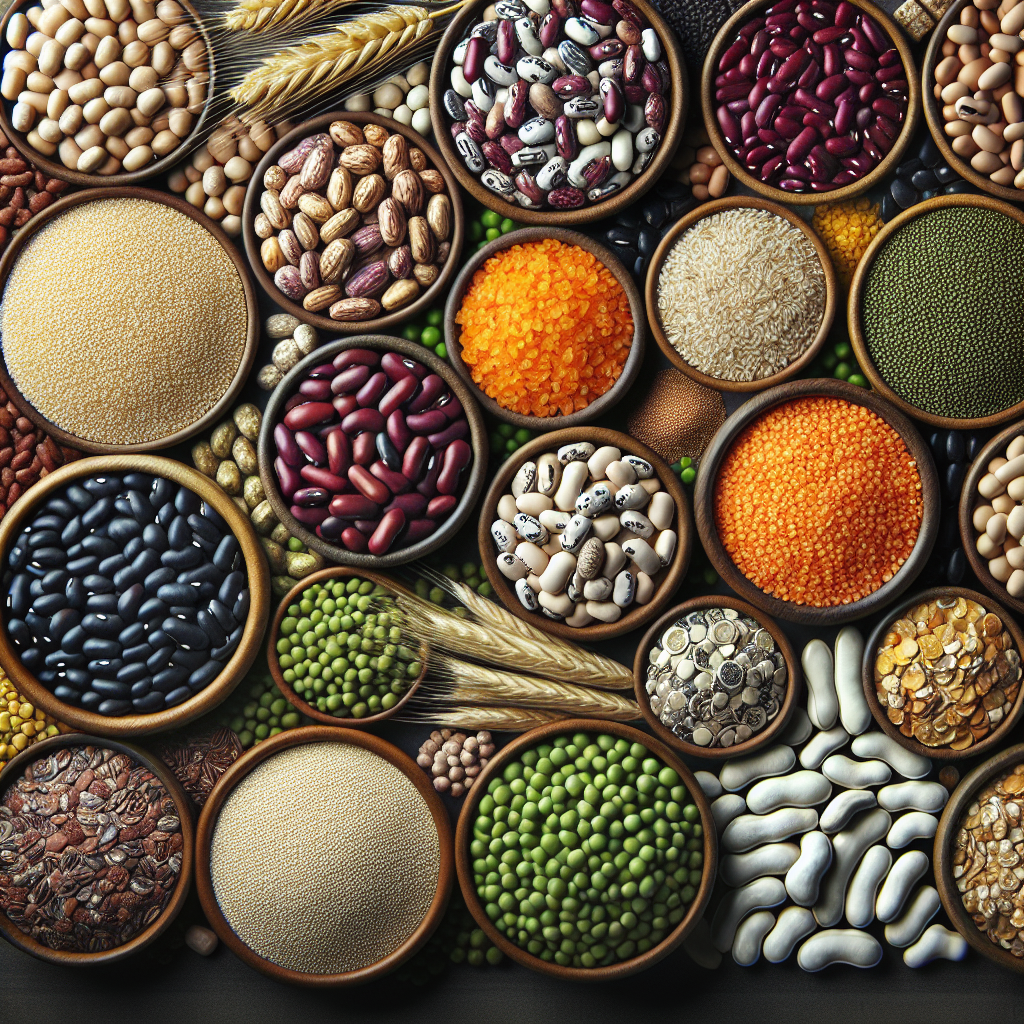In recent years, the plant-based diet has gained significant traction among health-conscious individuals for its myriad benefits, particularly when it comes to digestive health. A diet rich in plant-based foods is not only a powerhouse of nutrients but also plays a pivotal role in the maintenance of a well-functioning digestive system.
The Foundation of Digestive Health
The digestive system is an intricate network that plays a crucial role in overall health. It breaks down the food we eat, absorbs nutrients, and eliminates waste. To maintain this system, it’s essential to consume a diet that supports digestive processes and helps to prevent common digestive disorders.
A plant-based diet, which emphasizes the consumption of whole grains, fruits, vegetables, legumes, nuts, and seeds, has been shown to offer significant advantages for maintaining digestive health. Let’s delve into the reasons why incorporating more plant-based foods into your diet can lead to better digestive health.
Fiber: The Digestive System’s Best Friend
One of the most significant benefits of a plant-based diet is its high fiber content. Fiber, particularly the insoluble kind found in whole grains and vegetables, adds bulk to stool and helps it pass more quickly through the intestines, reducing the chance of constipation. Soluble fiber, found in foods like oats, apples, and beans, can help to regulate blood sugar levels and has been linked to a reduced risk of developing digestive conditions such as diverticular disease.
Prebiotics: Nourishing a Healthy Gut Microbiome
Plant-based diets are rich in prebiotics, which are essentially food for probiotics — the beneficial bacteria in your gut. Foods such as garlic, onions, asparagus, and bananas are excellent sources of prebiotics that help to maintain a healthy balance of gut bacteria, crucial for digestion and overall health. A diverse gut microbiome is associated with a strong digestive tract and can be supported through a plant-based diet.
Reduced Inflammation and Improved Gut Health
Chronic inflammation can lead to numerous health issues, including digestive problems. Plant-based diets are rich in anti-inflammatory compounds found in fruits and vegetables, such as antioxidants and phytochemicals. These compounds can help to reduce inflammation in the body, including the gut, and promote a healthy digestive system.
Lower Risk of Gastrointestinal Diseases
Studies have shown that a plant-based diet may lead to a lower risk of developing gastrointestinal diseases, such as inflammatory bowel disease (IBD), irritable bowel syndrome (IBS), and even certain types of cancer. The high intake of vitamins, minerals, and antioxidants from plant-based foods helps protect the lining of the digestive tract and reduce the risk of disease.
Optimal Digestive Enzyme Function
Digestive enzymes are essential for breaking down the food we eat into nutrients that the body can absorb. A plant-based diet can help maintain the proper function of these enzymes. Many plant foods, particularly raw fruits and vegetables, contain natural enzymes that aid in digestion, reducing the burden on the body to produce these enzymes.
Plant-Based Diet and Digestive Disorders
For those suffering from digestive disorders, a plant-based diet can offer relief and help manage symptoms. For instance, a high-fiber diet is beneficial for people with constipation. Moreover, eliminating common irritants found in animal products, such as lactose in dairy, can alleviate symptoms for those with food sensitivities or intolerances.
Incorporating Plant-Based Foods for Optimal Digestion
Transitioning to a plant-based diet doesn’t have to be an all-or-nothing approach. Gradually incorporating more fruits, vegetables, whole grains, nuts, and seeds into your diet can start to improve your digestive health. Here are some tips to help you make the switch:
- Start your day with a high-fiber breakfast like oatmeal with berries and flaxseed.
- Include a variety of vegetables in each meal, aiming for a rainbow of colors to maximize nutrient intake.
- Swap out animal proteins for plant-based alternatives, such as beans, lentils, or tofu.
- Snack on nuts and seeds, which are high in fiber and healthy fats.
It’s also important to stay hydrated, as water works in tandem with fiber to improve digestion.
Complementary Health Resources
For a comprehensive approach to wellness, consider exploring other areas of health that are connected to digestion. For instance, learning about the importance of bile in digestive health can provide insights into how different components of the digestive system work together. Additionally, understanding how to maintain a healthy pancreas for good digestion can be beneficial for overall digestive efficiency.
To complement the benefits of a plant-based diet, consider practices that enhance digestive efficiency through stress reduction. Stress management techniques can have a significant impact on gut health and digestion.
External Resources for Further Reading
For those looking to deepen their understanding of plant-based diets and digestive health, here are some highly specialized resources to explore:
- The Physicians Committee for Responsible Medicine offers a wealth of information on plant-based nutrition and its effects on health.
- The Vegan Society provides guidance on adopting a vegan diet and its health implications, including digestive health.
- For scientific research and studies, the NutritionFacts.org website, founded by Dr. Michael Greger, presents evidence-based information on nutrition and health.
- The Gastrointestinal Society offers specific insights into how plant-based diets can influence gastrointestinal health.
Incorporating more plant-based foods into your diet can lead to improved digestive health, among other benefits. By making conscious choices about the food we eat, we can take significant strides toward better health and well-being. With the right resources and a willingness to adapt our eating habits, we can nurture our digestive system and enjoy the full spectrum of benefits a plant-based diet has to offer.



